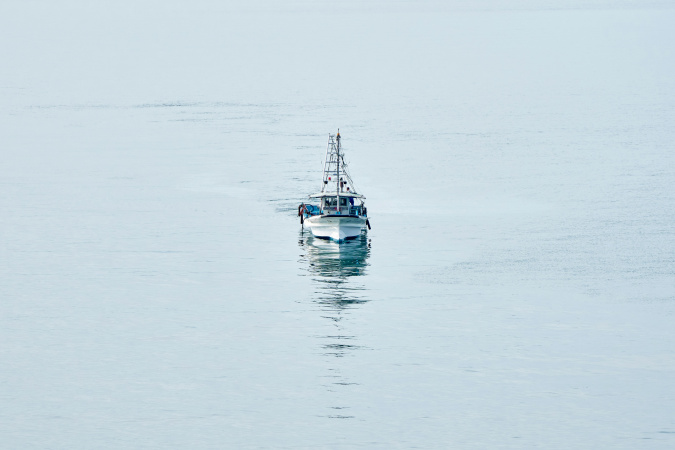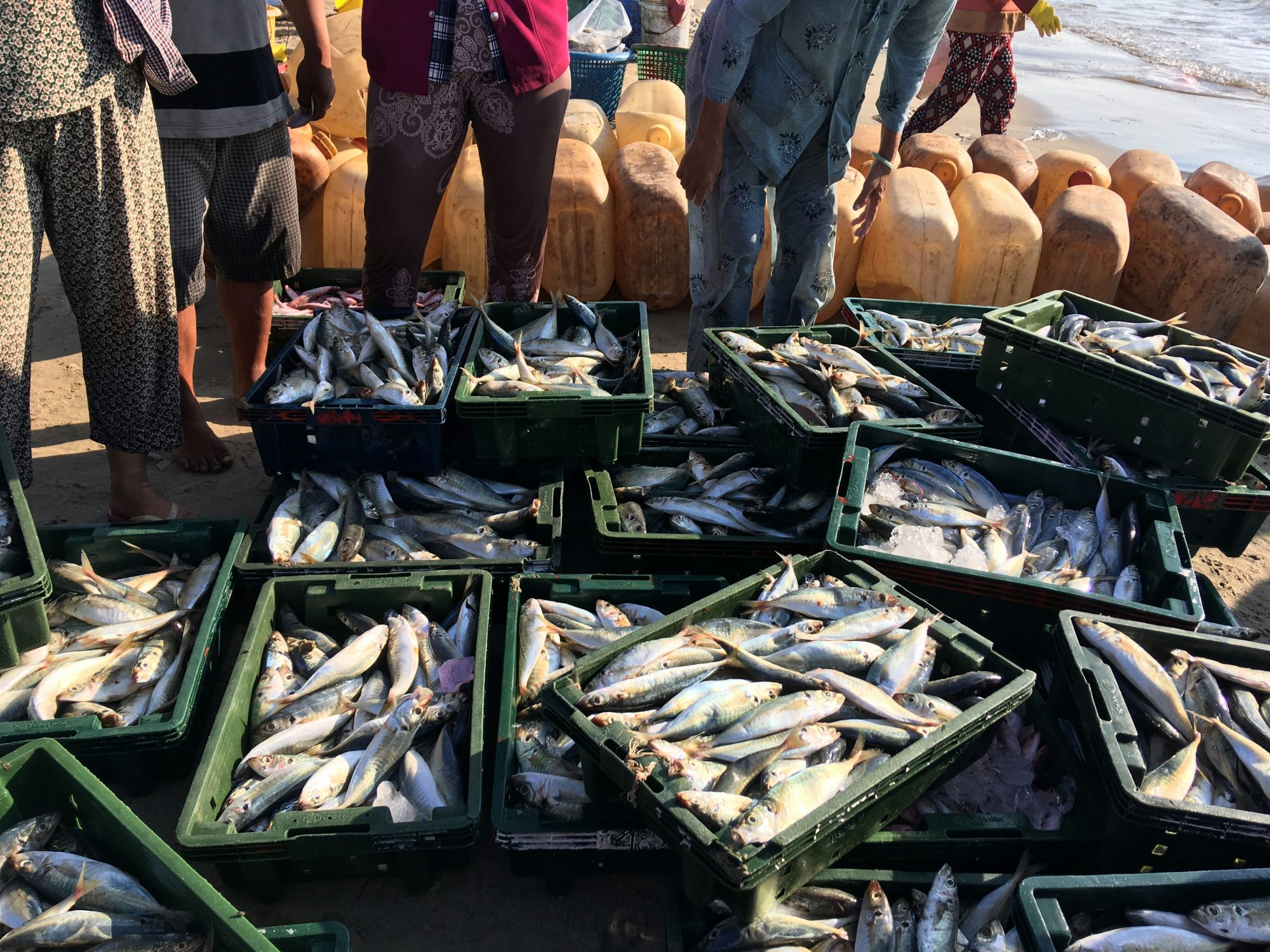
On September 5th Eastern Time, the U.S. Department of Labor released its latest "List of Goods Produced by Child Labor or Forced Labor," once again including Taiwan's distant-water fishing vessels on the list. This marks the third time Taiwan’s distant-water fisheries have been listed since their first appearance in 2020, making it the only industry in Taiwan currently on the list.
The U.S. Department of Labor pointed out that foreign workers on Taiwan's distant-water fishing vessels are often deceived by agencies with false wage and contract information, forced to pay broker fees, and sign debt agreements, thereby accumulating enormous debts. Once aboard Taiwan's fishing boats, these fishermen often face confiscation of identity documents, months without docking, and being forced to work in harsh conditions for 18 to 22 hours a day. They are subjected to physical violence, verbal abuse, and cannot escape the boats or terminate their contracts. Even the most essential aspects, such as wages and accommodation fees, are illegally deducted.
The Yilan Migrant Fishermen Union (YMFU) criticized, “Taiwan’s fishing vessel operators and intermediary agencies frequently use forced labor tactics for human trafficking, while the government allows the Fisheries Agency, a non-labor specialized body, to handle labor issues on distant-water fishing vessels. This agency even outsources public authority and resources to employer groups and intermediaries. With the Fisheries Agency’s protection and indulgence, vested interests act recklessly, exploiting sea laborers. Meanwhile, the Ministry of Labor, the competent authority for labor affairs, stands by and shirks responsibility, leaving maritime workers in a vulnerable position as victims of forced labor.”
The union stressed, "The international market is crucial for Taiwan's distant-water fisheries, but being listed for the third time demonstrates that the Taiwanese government has failed to effectively address systemic forced labor in the fishing industry. The U.S.-Taiwan Initiative on 21st-Century Trade is currently negotiating a labor chapter, and the EU recently passed the Corporate Sustainability Due Diligence Directive (CSDDD/CS3D) and the EU Forced Labor Regulation (EUFLR), requiring companies to conduct due diligence on human rights and environmental impacts in their supply chains. This shows the determination of foreign markets to eliminate forced labor products. If Taiwan's distant-water fisheries do not actively reform, they risk being excluded from the market."
Shi Yixiang, a senior researcher at the Taiwan Association for Human Rights, stated, “Taiwan’s fishing industry being listed three times on the U.S. forced labor list highlights systemic and institutional problems in Taiwan’s distant-water fishing industry. Take, for instance, the case disclosed on August 7th this year, where ten Indonesian fishermen on the ‘You Fu’ were owed wages by their employer for 15 months. If these long-term maritime workers had Wi-Fi equipment to communicate with their families during operations, their families might not have been plunged into a survival crisis due to the prolonged non-receipt of wages. We urge the Lai Ching-te government and the new cabinet, especially the Ministry of Agriculture and the Ministry of Labor, to see this listing on the forced labor list as both a warning and an opportunity. Our greatest concern is that the Taiwanese government and industry remain indifferent and complacent. Civil society, fishermen's unions, and many international organizations genuinely concerned about Taiwan's labor rights are very willing to collaborate with the government and industry. Together, we can develop solutions based on and centered around the fishermen to eliminate forced labor in the distant-water fishing industry.”
Wang Ying-da, Director of the Migrant Policy Division at the Serve the People Association, commented, “The U.S. Department of Labor has once again listed Taiwan’s fishery products on its list of goods produced by child labor or forced labor, marking the third time in a row—essentially six consecutive years—indicating that the U.S. government considers Taiwan's fishery products to carry a serious risk of forced labor. Over the past six years, there have clearly been no substantial improvements. The attitude of the U.S. government aligns entirely with the views of multiple Taiwanese labor rights, human rights, and environmental groups, including the Migrant Fishermen's Union. Just recently, the Control Yuan held a press conference addressing the plight of dozens of coastal fishermen who were dismissed by their employers during the off-season and, while waiting for work, were placed in extremely harsh living conditions by intermediaries. The recent scandal involving the ‘You Fu’ and the withholding of 18 months’ wages from ten fishermen further highlights that Taiwan’s fishing boats are repeatedly exposing various forms of serious exploitation, labor rights violations, and clear incidents of forced labor, proving that forced labor in the fishing industry—and among Taiwan's nearly 800,000 migrant workers—is not an isolated incident but a systemic issue. The root cause is the lack of political determination among politicians, who prioritize various political and economic interests over human rights. As a result, there has never been a formal response to the demands for fair employment, and illegal fees such as agency fees, job-buying fees, and kickbacks from brokers to manufacturing employers continue to exist. We believe the government must take three steps to truly demonstrate its determination to eradicate forced labor among Taiwan’s migrant workers: first, set a reform timetable and push for legislative amendments to fully implement fair employment (meaning that migrant workers do not have to pay any fees in the hiring process) and eliminate forced labor completely; second, agree with all migrant source countries to fully implement fair employment and prohibit any fees from being charged to migrant workers; and third, assist individual employers, fishing associations, and industry associations in negotiating with downstream brands and retailers, requesting them to share the costs of hiring migrant workers.”
Li Lihua, Secretary-General of the Yilan Migrant Fishermen Union (YMFU), stated, “Since Taiwan's distant-water fisheries were first listed in 2020, all actions taken by the Fisheries Agency have been solely to get off this blacklist, not to end forced labor. The government's attitude towards combating human trafficking and ending modern slavery is passive and inactive, focusing only on fishery output and the maximum interests of fishing operators, while disregarding the labor dignity and basic human rights of fishermen. This should be condemned by international public opinion and subjected to severe sanctions.”
Lin You-liang, Director of Ocean Projects at the Environmental Justice Foundation (EJF), said, "Recently, the Taiwanese government released a report emphasizing significant improvements in forced labor conditions on distant-water fishing vessels. However, the EJF continues to find issues such as wage withholding, retention of bonds and documents, and poor living conditions on some vessels in our investigations. EJF, in addition to continuing dialogue and communication with the government, also urges the Taiwanese government to swiftly implement ILO C188 into domestic law and ensure that related measures are effectively enforced."

Sari Heidenreich, Senior Human Rights Advisor at Greenpeace USA, remarked, “The report released by the U.S. Department of Labor today underscores an alarming fact: American consumers are still at significant risk of consuming seafood that may be tainted by modern slavery. As long as Taiwan’s distant-water fisheries remain on the list, companies importing Taiwanese seafood must exercise stricter oversight of their supply chains. Moreover, continuing to purchase products associated with forced labor not only poses serious moral and legal risks but also fails to meet the growing consumer demand for transparency in seafood sourcing. Therefore, if companies can quickly and decisively address these issues, they can demonstrate robust business acumen and ethical leadership, while also protecting the labor force and consumers involved by eliminating human rights violations from their supply chains.”
〔Taiwan News / Reporter Gao Yiling 〕2024-09-06 12:14 〔photo by Unsplash,Buddy Photo,Duangphorn Wiriyao〕
